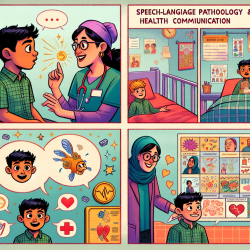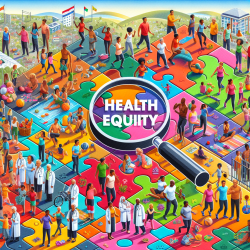In the ever-evolving field of education and therapy, understanding how social learning influences behavior is crucial. The recent study titled "Social learning may lead to population level conformity without individual level frequency bias" offers valuable insights that can enhance the practice of therapists and educators alike. This blog post will explore the key findings of the research and suggest ways practitioners can apply these insights to improve their skills.
The Essence of Social Learning
Social learning is a process where individuals observe and imitate others' behaviors. It plays a significant role in shaping cultural norms and behaviors within groups. The study highlights that social learning can lead to population-level conformity even without individual frequency bias. This means that individuals do not necessarily have to observe a majority behavior frequently to adopt it; instead, the mechanism of social enhancement can drive conformity.
Key Findings
- Population-Level Trends: The study demonstrates that social enhancement can lead to conformist or anticonformist trends at the population level, depending on how individuals update their behavior based on observations.
- Reinforcement Learning: When combined with reinforcement learning, social enhancement can amplify behavioral conformity. This interaction suggests that reinforcement learning alone is insufficient for conformity but becomes powerful when paired with social enhancement.
- Specification Sensitivity: The results emphasize the importance of specifying how social enhancement influences behavior. Different specifications can lead to varying outcomes, highlighting the need for precise modeling in research.
Practical Applications for Practitioners
For therapists and educators, understanding these dynamics can significantly impact how they approach behavior modification and skill development in students. Here are some practical applications:
- Modeling Desired Behaviors: Encourage students to observe and model desired behaviors from peers or role models. This approach leverages the power of social enhancement to promote positive behavioral trends.
- Reinforcement Strategies: Integrate reinforcement learning techniques with social observation. Rewarding desired behaviors observed in peers can strengthen conformity to positive norms.
- Customizing Interventions: Recognize that different students may respond differently to social cues. Tailor interventions based on individual responsiveness to social enhancement mechanisms.
Encouraging Further Research
The study opens avenues for further exploration into how social learning mechanisms influence group dynamics and individual behavior. Practitioners are encouraged to engage in research that examines different specifications of social enhancement and their effects on therapy outcomes.
"To read the original research paper, please follow this link: "Social learning may lead to population level conformity without individual level frequency bias"
This research underscores the complexity of human behavior and the potential for innovative approaches in therapy and education. By understanding and applying these insights, practitioners can enhance their effectiveness and contribute to more cohesive and adaptive educational environments.










